Food Color
Food colorings give colors to food to produce deliciousness and pleasantness. They have effects of inhibiting changes in food color tones and compensating for the loss or fading of color which happens during the manufacturing process and/or during storage to keep color tones. Glico Nutrition has a diverse lineup available for different purposes.
Red Colorings
■Monascus Color
Monascus color is a red pigment produced by Monascus. Monascus has been used by humans since ancient times, like Koji mold used to make sake, miso, and soy sauce in Japan.
Our MONAS COLOR series is a liquid or powder product made by producing Monascus integratedly, extracting produced pigments with alcohol, concentrating and purifying them, and then adjusting chromaticity.
| Product | Features |
|---|---|
| MONAS COLOR 1000P (powder) |
Color: bright red Highly concentrated in powder form. |
* The color tone may differ from the actual one.
■Beet Red
Beet Red is a pigment extracted from beet root. It can be labeled as "vegetable color." It has a bright pink color in the acidic to neutral range.
| Product | Features |
|---|---|
| BEET COLOR 750P (powder) |
Color: vivid pink Stable in acidic to neutral. |
* The color tone may differ from the actual one.
■Cochineal Extract
Cochineal color is an anthraquinone red pigment extracted from cochineal insects found on cacti, and its main ingredient is carminic acid. In South America, it has been used for clothing and decoration since the time of the Inca Empire, and is also used to color Campari (liquor).
| Product | Features |
|---|---|
| COCHINEAL COLOR RC (powder) |
Color: bright pink Excellent light and heat resistant. |
| COCHINEAL COLOR CW (powder) |
Color: peach red Suitable for coloring kamaboko (fish paste). |
* The color tone may differ from the actual one.
■Lac Color
Lac color is an anthraquinone red pigment mainly composed of laccainic acid. It is extracted from a resinous substance secreted by female lac insects.
| Product | Features |
|---|---|
| LAC COLOR RL (powder) |
Color: reddish purple Excellent light and heat resistant. |
* The color tone may differ from the actual one.
■Red-Coloring Formulation
| Product | Features |
|---|---|
| CREATION COLOR ALM (powder) |
Color: orange-red Harder to discolor than monascus color. Suitable for coloring crab-flavor kamaboko (fish paste). |
* The color tone may differ from the actual one.
■Paprika Oleoresin
Paprika color is an orange-red carotenoid pigment extracted from solanaceous paprika fruits with oil or organic solvent. Its main component is capsanthin. It is one of the most popular vegetable-derived colorings and is used in many products.
| Product | Features |
|---|---|
| PAPRIKA COLOR 1400P (powder) |
Color: reddish orange Water-dispersible. Concentration: 20,000 CV |
* The color tone may differ from the actual one.
Yellow Colorings
■Gardenia Yellow
Gardenia yellow color is a water-soluble (rare among natural pigments) carotenoid pigment extracted from rubiaceous gardenia fruits. The color is bright yellow and will be brighter in the alkaline range, but changes little according to the change in pH level.
| Product | Features |
|---|---|
| KUCHINA COLOR 400PS (powder) |
Color: bright yellow Highly purified. Almost unaffected in color by enzymes. |
| KUCHINA COLOR 400P (powder) |
Color: bright lemon yellow in the alkaline range Suitable for coloring Chinese noodles. |
| KUCHINA COLOR 500GS (granular) |
Color: bright yellow Highly purified. Almost unaffected in color by enzymes. Water-soluble. |
| KUCHINA COLOR 750GS (granular) |
Color: bright yellow 1.6 times more concentrated than KUCHINA COLOR 500GS. |
* The color tone may differ from the actual one.
■Carthamus Yellow
Carthamus color is a yellow pigment extracted from asteraceous safflower flowers. Its main component is safflower yellow, a chalcone. It exhibits excellent acid and light resistance in the acidic range.
| Product | Features |
|---|---|
| BENIBANA YELLOW AP (powder) |
Color: bright yellow Excellent acid and light resistance in the acid range. Water-soluble. |
* The color tone may differ from the actual one.
Blue Colorings
■Gardenia Blue
Gardenia blue color is a blue colorant obtained by adding β-glucosidase to a mixture of iridoid glycosides contained in gardenia fruit extract, and protein degradation products.
| Product | Features |
|---|---|
| KUCHINA BLUE COLOR 1250P (powder) |
Color: bright blue Excellent heat and light resistance. |
* The color tone may differ from the actual one.
Green Colorings
■Gardenia Green
We have a lineup of two types of colorants, bright green and dark green, made by varying the blending ratio of gardenia yellow and gardenia blue. They provide various images.
| Product | Features |
|---|---|
| KUCHINA GREEN COLOR P1 (powder) |
Color: green Pigment formulation of a mixture of Gardenia yellow and Gardenia blue. |
| KUCHINA GREEN COLOR P2 (powder) |
Color: green Deeper green than KUCHINA GREEN COLOR P1. |
| KUCHINA GREEN COLOR PG1 (granular) |
Color: green Granulated formulation of KUCHINA GREEN COLOR P1. Water-soluble. |
| KUCHINA GREEN COLOR PG2 (granular) |
Color: green Granulated formulation of KUCHINA GREEN COLOR P2. Water-soluble. |
* The color tone may differ from the actual one.
Brown Colorings
■Cacao Color
Cacao color is a brown flavonoid pigment contained in sterculiaceous cacao beans and husks.
| Product | Features |
|---|---|
| CHOCO COLOR 610P (powder) |
Color: reddish chocolate brown Excellent light and heat resistance. Water-soluble. Suitable for protein-based foods. |
* The color tone may differ from the actual one.
Black Colorings
■Vegetable Carbon
This is bamboo charcoal made from carbonized Japanese bamboo.
It is attracting attention in the black-colored food market due to its healthy image.
A small quantity of bamboo charcoal can be mixed with other colorants to produce a darker, deeper color tone.
* The color tone may differ from the actual one.
| Product | Features |
|---|---|
| TAKESUMI POWDER 5P (powder) |
Color: black Ultra-fine powder resulting in a silky texture. Average particle diameter of 5 μm. Low impurity content. Water-dispersible. |
■Sepia/Squid Ink (Food Material)
Sepia/squid ink is manufactured by purifying and heat-drying ink sac of Sepia lycida or other squids.
* The color tone may differ from the actual one.
| Product | Features |
|---|---|
| IKASUMI POWDER (powder) |
Color: black Less squid ink-specified odor. Water-dispersible. |


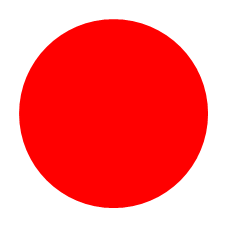 Red Colorings
Red Colorings 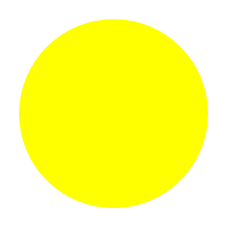 Yellow Colorings
Yellow Colorings 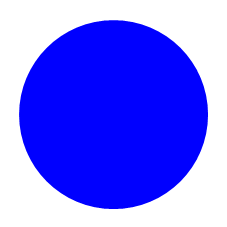 Blue Colorings
Blue Colorings 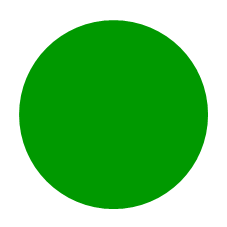 Green Colorings
Green Colorings 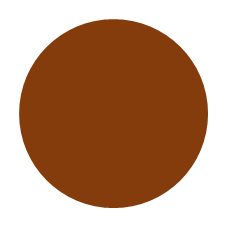 Brown Colorings
Brown Colorings 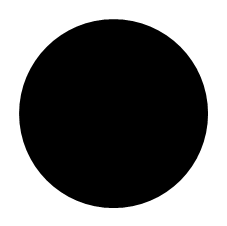 Black Colorings
Black Colorings 























